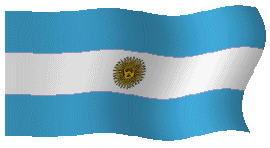
B"H
Jewish  Tours
Tours
 Buenos Aires, Argentina
Buenos Aires, Argentina
ARGENTINA, South American Federal Republic, general population (2004) 39,150,000; Jewish population 190,000.
The Zionist movement in Argentina had changed in the 1930s and the 1940s from a conglomerate of organizations with disconnected activities to a stable federation called "Consejo Superior Sionista." The decision of the 19th Zionist Congress (1935) to promote the unification of the Zionist organizations, together with the impact of the Holocaust, brought the two main Zionist parties – General Zionist and Po'alei Zion (the Revisionists demurred) – to the realization that they had to work together under a common umbrella organization, although they kept their own identities within the Zionist framework.
The anti-Zionist left-wing organizations challenged the Zionists since they competed for the leadership of the communal institutions. This threat to their efforts to gain control over the main institutions, especially AMIA and DAIA, dictated the collaboration between the two Zionist parties.
Control of the National Funds – Keren Hayesod and Keren Kayemeth LeIsrael – was one of the ends that engendered competition between the different sectors in the community. In 1937, when a branch of the Jewish Agency for Ereẓ Israel was established in Argentina, the Zionist parties cooperated to avoid non-Zionist control of the Funds. During the second half of the 1940s circumstances were different and the Zionist parties competed with each other for the control of the National Funds and the appointment of their members as shliḥim (emissaries) of the Funds. The Zionist parties and the leaders of the National Funds tried to adhere to the policy established by the WZO and maintain the autonomy of both Funds. During the War of Independence (1948), however, Argentinean Jewry decided to declare a united campaign on behalf of Israel. The impressive results proved the extent of their identification with the Zionist cause, which went far beyond the politics of fundraising, leadership of organizations, parties, and shliḥim.
Until the middle of the 1940s the World Zionist Organization (WZO) believed that the most important activities of Zionism in Argentina were connected with fundraising. After WWII, when Argentina became relevant to the fight for the establishment of a Jewish state, the WZO changed its attitude and Argentinean Jewry was transformed into a partner in the political efforts to achieve international recognition.
The Zionist parties became dependent on their central organizations in Israel. Nevertheless, they believed that local activities within the framework of the Jewish communal organization were very important in themselves, also as a way to maintain their close ties with Zionism and Israel. The parties, especially the two trends of Po'alei Zion (right and left), made serious efforts to develop local activities. They were very active in formal education and maintained complementary Jewish schools like the Sholem Aleichem and Bialik school networks. All the parties were active in informal education and maintained pioneer youth movements like Ha-No'ar ha-Ẓiyyoni, Dror-Heḥalutz, Betar, Gordonia, Dror-Habonim, and Ha-Shomer ha-Ẓa'ir, which provided the first groups of olim with a strong ideological conviction in the second half of the 1940s and after the establishment of Israel.
The two major parties, General Zionists and Po'alei Zion, differed in their attitude to the desirable attitude of the Jews toward Argentina and its society. Both parties agreed that they had to respect the status of the Jews as Argentinean citizens. But while the General Zionists believed that Jews had to limit their organized activities as Jews to internal communal and Zionist matters, and that their activities in the general society was entirely a private matter, Po'alei Zion promoted organized Jewish action also in the general civil arena and politics. Actually, the latter's position failed.
The two parties also competed with each other for the leadership of the community's institutions and debated the organization and structure of DAIA. Po'alei Zion wanted a change in the electoral criteria and promoted the idea of general elections with the participation of all the Jews. The General Zionists supported the existing federative structure in which the board was elected by the representatives of the institutions which adhere to DAIA. While the latter's position prevailed, the discussion continued into the 21st century, even though there were different political trends now involved in DAIA.
|
Visite nuestro sitio/Visit our home page: |